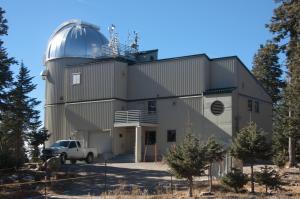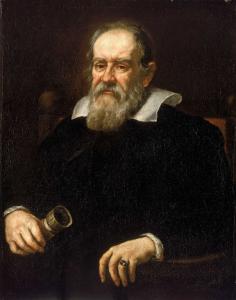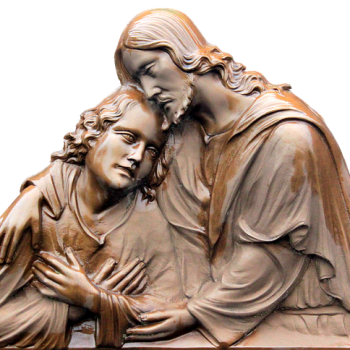According to popular opinion, the Catholic Church is still mired in the Inquisition and still ignorant of modern science. After all, look what they did to Galileo Galilei.
Every time I hear a critic of Catholicism mention Galileo, I want to say, “Really, you’re going to bring up something that happened 400 years ago? Talk about not moving on!” Harping on Galileo is especially ridiculous since most of what people believe is myth.
Vatican Astronomers
Attempting to dispel this myth is Christopher Graney — astronomer and science historian at the Vatican astronomical observatory and Adjunct Scholar at the Vatican Observatory Foundation in Tucson, Arizona.
(Note: the Vatican has an Advanced Technology Telescope on Mount Graham, about 70 miles NE of Tucson.)

Graney’s research on 16th and 17th century astronomy has resulted in two books and, specific to Galileo, two recent articles in Catholic publications about the true story of Galileo and the Church.
One, “The Truth About Galileo,” can be found at The National Catholic Register online: https://www.ncregister.com/blog/myth-of-galileo
The other article, “What the story of Galileo gets wrong about the church and science,” was written with Brother Guy Consolmagno, S.J., the director of the Vatican Observatory: https://www.americamagazine.org/arts-culture/2020/09/18/what-story-galileo-gets-wrong-about-church-and-science
Considering their credentials, these guys ought to know what they are talking about. It should also be mentioned that the Vatican Department of Astronomy is considered the best department of its kind in the world.
Further, members of the Pontifical Academy of Sciences include the most prominent scientists in the world (think Stephen Hawking and various Nobel Laureates).
What Really Happened
According to legend, Galileo was tried by the Inquisition for the audacity to claim that the earth orbited the sun instead of the other way around. As Graney notes: “In recent variations of this myth, the Catholic Church has been cast in the role of science deniers who used Scripture as a cudgel to deny Galileo’s claims and found him guilty of heresy.”
It is true that Galileo was called before the Inquisition and punished with house arrest for the rest of his life. House arrest was a slap on the wrist, though, compared to the dungeon punishments of the day, and Galileo was able to continue his work.
In relation to the scientific knowledge of his time, Galileo was radical, so the judgment, while incorrect, was a reasonable decision. Of course, politics were involved too.

Despite what the social media snipes say, it is not true that Galileo was tortured. Galileo was not excommunicated, did not invent the telescope, and did not actually prove that the Earth moves.
How Misinformation Gets Spread and Validated
Nonetheless, the observatory gets hate mail accusing the Church of “barbecuing” scientists. What’s even more disturbing is that Graney was able to cite a Harvard astronomer, an Oxford publication and a new Simon & Schuster publication that all propagate misinformation about the Church and Galileo.
How can eminent scholars err so grievously? Because they are looking at 17th century science with the knowledge of the 20th century. They see the events through modern eyes and not through the eyes of the people who were there and had a different world view and a different understanding of astronomy.
Toss into this misinterpretation a modern tendency to believe anything bad about the Church, and you get science fiction instead of facts. How can these “experts” travel so off the mark? Don’t they do research?
Yes and no. They start with assumptions based on the myth and then find sources that match those assumptions, never checking on whether those sources are biased.
I once edited a book for a political science professor whose main sources were two notoriously left-wing newspapers. His chapter on abortion was ridiculously out of date and horribly misinformed.
It was obvious this “expert” had never talked to a pro-life person or ever considered anything but pro-abortion propaganda. Yet I’m sure he thought he had done his research, and his readers thought he knew his subject.
Seek the Truth
If you are the type of person who reads The DaVinci Code and thinks its descriptions of the Church are true, then you are probably content with the Galileo myth. Cloak and dagger tales and conspiracy theories and more thrilling than the truth and easier to find, right?
As Graney says, “But Catholics must seek truth. That is one reason the Vatican supports an astronomical observatory and thus participates in the search for scientific truths.”
Catholics are not conservative; we are steadfast. We follow the way of Christ and of science. If you want the truth, look to the Church.
















